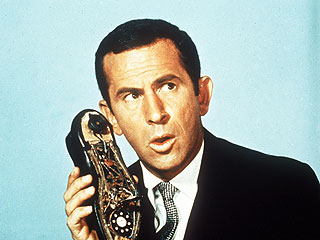First, why do so many employers, small and large, self fund? Because it has proven to be the most cost effective way to deliver the highest quality benefit plan since ERISA was passed in 1974. Prior to the HMO explosion in the 90s, and the dominance of Carrier PPO networks since, there was a large and vibrant small group self-funded market. Carriers such as Vasa Brougher and Perico specialized in it. As they did 20 years ago, small groups today have started to look at self funding again. And contrary to Mr Jost’s claim, PPACA is a very minor reason why the market has rebounded, and certainly doesn't explain why the market rebounded prior to 2010.
Found? They are selling the same policies they have been selling continually since the late 70s and early 80s. This is hardly the devious plot to circumvent PPACA Jost is trying to trick people into believing. What has been found is a new and dishonest excuse for those that have been opposed to self funding for decades to make another run at it. Remember that Jost is attempting to get existing model guidelines increased, if PPACA is the reason small groups are looking at self funding now, why were the much lower current limitations proposed years ago?
“The two types are known as the "self-insured" and the "fully insured," and historically, smaller companies gravitate toward the second classification. They don't insure themselves … because, with too few employees, a couple of major illnesses or surgeries could be financially calamitous.”
This paragraph displays a complete lack of understanding of insurance. Self-insured and fully insured refer to a type of insurance and don’t in any way accurately portray risk. With a self-funded plan, companies are able to manage the claim and the risk that comes along with it. With a fully insured plan, you usually don’t even know it exists until you get a 30-40% rate increase from your carrier, at which point there’s precious little you can do about it.
"There's a reason most small businesses -- those with 50 or fewer employees -- don't directly pay the health care expenses of their employees -- it's too risky. Instead, small companies that offer employee health coverage purchase group policies from health carriers, allowing the insurer to assume the risk."
As an insurance professional for 20 years, this is a pretty amazing quote to read in the news section of a paper, because its completely ignorant of what has actually been happening in the market for over 5 years now, long before PPACA. For example, my own company has hundreds of clients under 50 lives that take risk. The company has specialized in this segment since the mid 1980s. And a large number of small employers take some risk: they purchase a fully insured, high deductible plan then self fund back down to lower deductibles, calling them HRA or MERP plans. Brokers do this for their clients, all the carriers offer it, third party administrators (TPAs) like mine do it. There are thousands of firms offering this type of small group “self funding.”
and they have been doing it long before Obama even ran for President, let alone passed ObamaCare.
“These are unconventional times, though, and with federal health overhaul measures taking effect and a new online insurance marketplace set to be operational in 2014, smaller companies are taking a second look at self-insurance.”
Why would Jost and/or the reporter leave out that small employers have been taking a second look at self funding since 2007-2008 and there have always been small self-funded groups? Did Toland speak to any employers, brokers, or TPAs prior to reprinting Jost’s propaganda? Apparently not.
“Self-insurance becomes possible when a company also buys "stop-loss" insurance.”
Again factually incorrect: you can self-fund under a fully insured policy just as easy as you can under stop loss. You can also self-fund portions of risk without any reinsurance at all. In his attack on small business, Jost is trying to equate stop-loss to nefarious attempts to circumvent PPACA in order to call for the elimination of stop loss. But if it is ok to self fund under a $5,000 fully insured policy, why shouldn’t employers be allowed to self fund under a $5000 stop loss policy?
“But some experts are concerned that insurance companies, in trying to win new business, are offering stop-loss coverage at artificially low prices by poaching the healthiest of small groups.”
Toland means to say ‘artificially low specific attachment point;’ if he had spoken to anyone in the business he would know the prices are
not low. The attachment point is not the price, a mistake the “journalist” should not be making if he understood what he was talking about, or had bothered to learn. And who are these "experts" and why are they not named? Are we suppose to trust Toland that they exist and are really experts? More likely they are partisans pushing a political agenda, only expert in their ideology.
“this type of coverage isn't regulated by the Affordable Care Act, or by most states.”
Wrong again: Toland doesn’t understand what he is reporting, he is just reprinting Jost’s talking points. There is not a State in the country that doesn’t regulate and license the carriers selling stop-loss in their borders (all 58 of them).
“Less-healthy small groups could be dumped into the more strictly regulated exchange marketplace, lifting premiums for everyone.”
Could….but in reality that is not what happens. If Toland had bothered to actually ask someone who knew what they were talking about, he would know that this is not true: it is usually the sicker groups (that need to lower their costs) that move to self funding to gain control. Why report the reality of the market when you can push political agendas and potential hazards?
“Stop-loss policies -- unlike commercial health insurance policies -- do not carry a "guarantee of a renewal" quote.”
Toland is just lying to his readers now. Most small group self-funded policies I sell do include a guarantee of renewal and some even include a rate increase cap. With stop loss in general I can’t think of a carrier off the top of my head that as company policy doesn’t guarantee renewal.
“If younger or healthier groups self-insure, "all those prices will jump up," because the risk and cost will be spread less broadly, said Mark A. Hall, a professor of law and public health at Wake Forest University.”
Mark Hall…isn’t that Jost’s partner on most of his propaganda pieces? I would think the readers might like to know the relationship between multiple sources being cited? What if older and sicker groups self fund and fix their claim problems, what does that do to cost for everyone? Why is that fact that actually happened now not discussed?
“Insurers, as well as the brokers that sell the products and stand to make bigger commissions on them, differ on the practice”
I challenge Toland to back this up. With 99% of the business I have, the self-funded plans pay substantially lower commissions then fully insured ones. That is how fully insured carriers stem the flow of groups going self-funded: they pay the agents more to do less work. Unlike many (most?) fully insured plans, in self-funded the commission is disclosed and the group knows what their agent is paid.
This is one of the worst pieces of “journalism” I have seen. If the Post-Gazette even has editors they need to take this piece down and look at suspending Toland. The factual errors are numerous and meant to advance a political agenda, not something “journalists” are supposed to be doing in the news section.

















